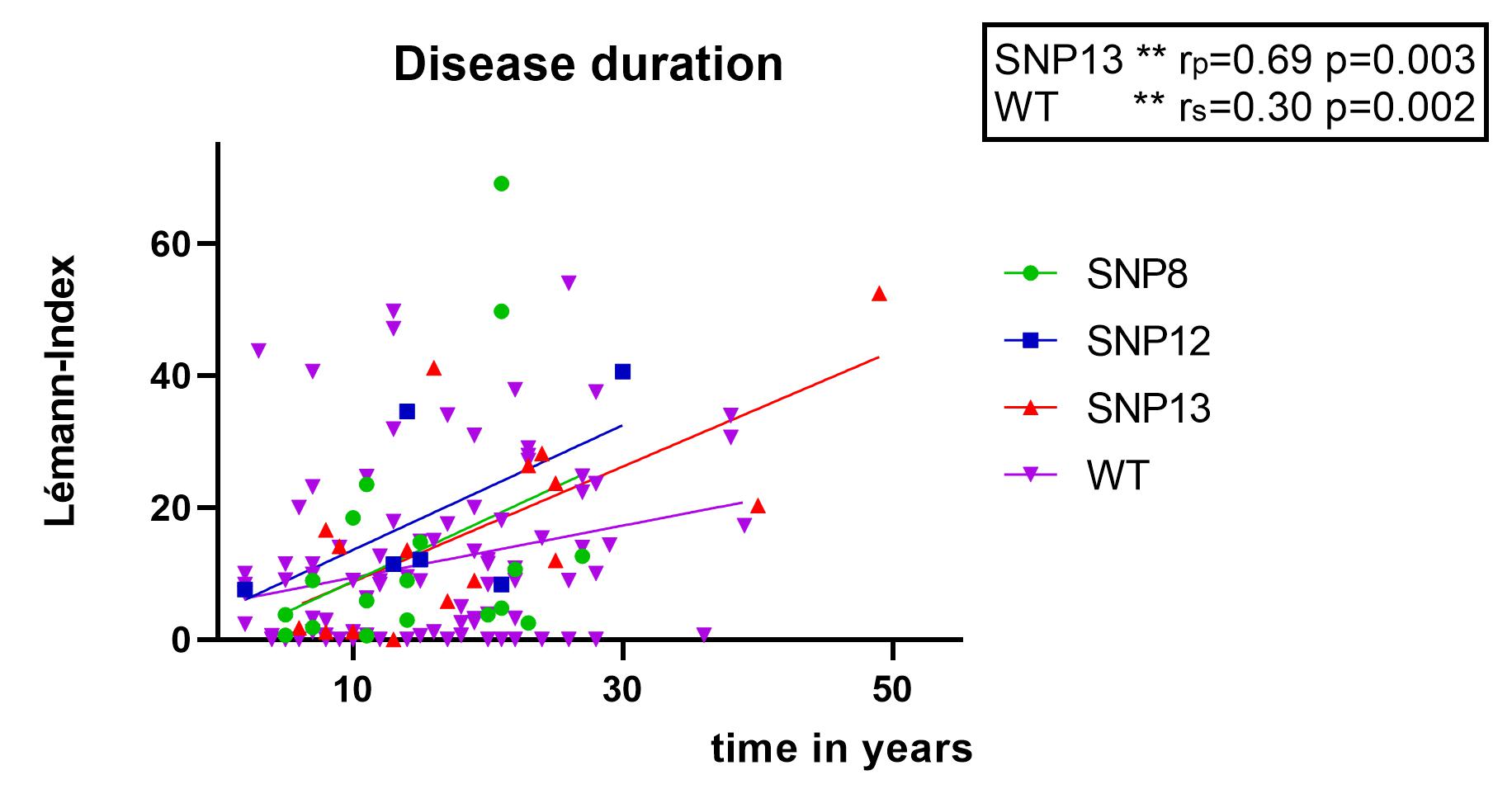P907 NOD2 mutations are associated with the development of inflammatory and progressive digestive tract damage in Crohn’s disease
Behnisch, S.(1)*;Reiner, J.(1);Witte, M.(2);Holle, A.(1);Schäffler, H.(1);Huth, A.(1);Jaster, R.(1);Lamprecht, G.(1);
(1)Rostock University Medical Center, Division of Gastroenterology- Department of Medicine II, Rostock, Germany;(2)Rostock University Medical Center, Department of General- Visceral- Thoracic- Vascular and Transplant Surgery, Rostock, Germany;
Background
Single-nucleotide polymorphisms (SNP) of the Nucleotide-binding oligomerization domain-containing protein 2 (NOD2) gene are associated with higher risk for Crohn´s disease (CD). It has also been reported that they are more likely to associate with specific phenotypes such as stricturing or perianal disease and the need for resection surgery. The aim of our study was to investigate if these NOD2 variants are associated with higher cumulative bowel damage in Crohn’s disease.
Methods
We performed NOD2 genotyping in a cohort of 150 patients with CD from a tertiary care center in Germany. The risk polymorphisms SNP 8 (R702W, rs2066844), SNP 12 (G908R, rs2066845), and SNP 13 (1007fs, rs2066847) were screened for. The Lémann-Index (LI) was calculated to estimate digestive tract damage of each patient. Additionally, we collected the following data: age at diagnosis, disease location and behaviour using the Montréal classification, and the disease duration.
Results
Fifty patients carried at least one of the three SNPs. In the univariate analysis, the LI of patients with at least one risk-SNP was not significantly different from the LI in patients without a risk-SNP (NOD2 WT), 13.62 ± 15.10 vs. 11.57 ± 13.08, p=0.196. Also, after stratification for the single polymorphisms, the LI was not significantly different in patients with vs. patients without SNP. However, variants of NOD2 were associated with a higher LI in patients with non-stricturing, non-penetrating disease behavior (Montréal classification B1), 2.61 ± 2.80 vs. 0.85 ± 1.82, p=0.007. Importantly, in the presence of SNP13 a strong correlation between the LI and disease duration was found, rp = 0.69. In contrast, only a weak correlation was detectable in the presence of NOD2 WT, rs = 0.30 (figure 1). The LI was significantly higher in patients with SNP13 and an early disease onset than in patients who were first diagnosed at a higher age.
Figure 1.
Conclusion
NOD2 risk polymorphisms are associated with a high LI during non-stricturing, non-penetrating disease behaviour. In line with this, we observed higher digestive tract damage in patients with CD diagnosis at a young age in patients with the polymorphism SNP13. Finally, our data suggest that particularly SNP13 predisposes to progressive damage accumulation over the disease course.


